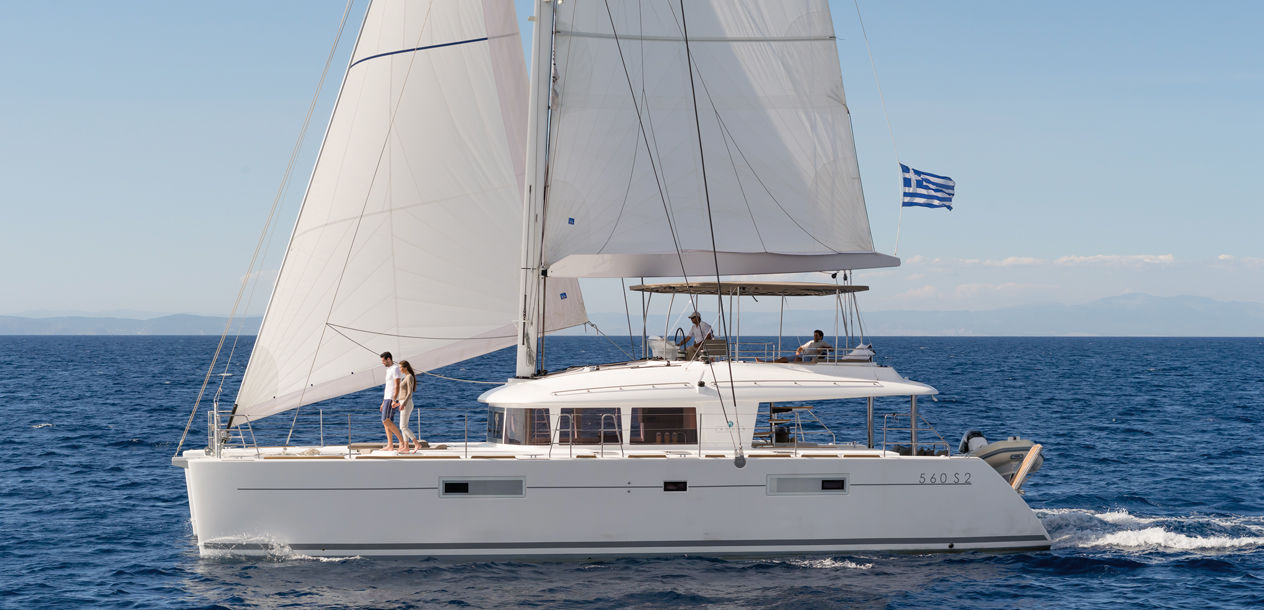
Issue #: 11
Published: August / September 2017
- Price per issue - digital : 6.50€Digital magazine
- Access to Multihulls World digital archives Digital archives
Europe is both the world leader in multihull manufacture and a superb nautical destination. Cruising in Europe is therefore essential for a good number of us. As an (almost) harmonized area, whether you are leaving, arriving or just passing through, whether you are flying a community or an external ensign, and even according to your finance mode, the cases are extremely varied. Shall we try and look at things more clearly?
Your brand-new multihull is looking good. It is already tugging at its mooring lines, which it must be said are more often than not tied to a berth in a French port. On the Atlantic coast or in the Mediterranean, Tabarly’s disciples have made boats with two or three hulls their specialty. But in the last thirty years, the development has been radical and current production irreverently treats the often British pioneers as peculiar soapboxes. But perhaps you have fallen for a model built in the very dynamic boatyards of South Africa, in Asia, in Australia, the other multihull land, or in one of the numerous yards in the four corners of the world capable of crafting a ‘haute couture’ catamaran or trimaran. In all these cases, given the sums involved, taxation is an important question. For us cruisers, in love with freedom, living permanently with a sword of Damocles called VAT hanging over our heads is antinomic with our passion. Europe in general, (and France in particular), doesn’t have a good reputation in this matter. However, by delving a little deeper, not only is it not as complicated as all that, but the legislation can even prove to be very advantageous.

So, whether you are coming from the other side of the world, or are a native European, starting with a little geo-political information of an administrative nature may be a savior for your finances. In fact Europe is not just a huge boatyard for multihulls, it is also 35,320 nautical miles of coastline. But it is above all, for the subject concerning us here, and for the 28 countries of the European Union (minus the United Kingdom when Brexit takes place, see the full list at the end of this article), an economic and customs union, which began with the founding Treaty of Rome in 1957. Moreover it was then just a question of a European Economic Community (EEC). In the Treaty were set out the fundamental principles, including notably the free movement of property. The successive treaties more often than not reinforced it. Better still, since 1st January 1993, a genuine single market has been established. This means one important thing: as VAT has become a European tax, when it is paid in one European Union country, it can’t be claimed in another. And all the European Union countries are supposed to apply the same rules.
Let’s look at the practical repercussions of this little introduction. You are a private individual, a European resident, purchasing from a local boatyard. For a new boat, note that the VAT is no longer due in the destination country, but in the country in which the delivery takes place, more often than not the country of origin, since the VAT Directive of November 2006. Thus a German or English owner buying a boat from a French builder will pay French VAT, currently 20%. And the VAT will be considered paid in the whole of the European Union. This will be proved by the issue of an invoice with VAT included. A document to be kept preciously to prove throughout ...
What readers think
Post a comment
No comments to show.